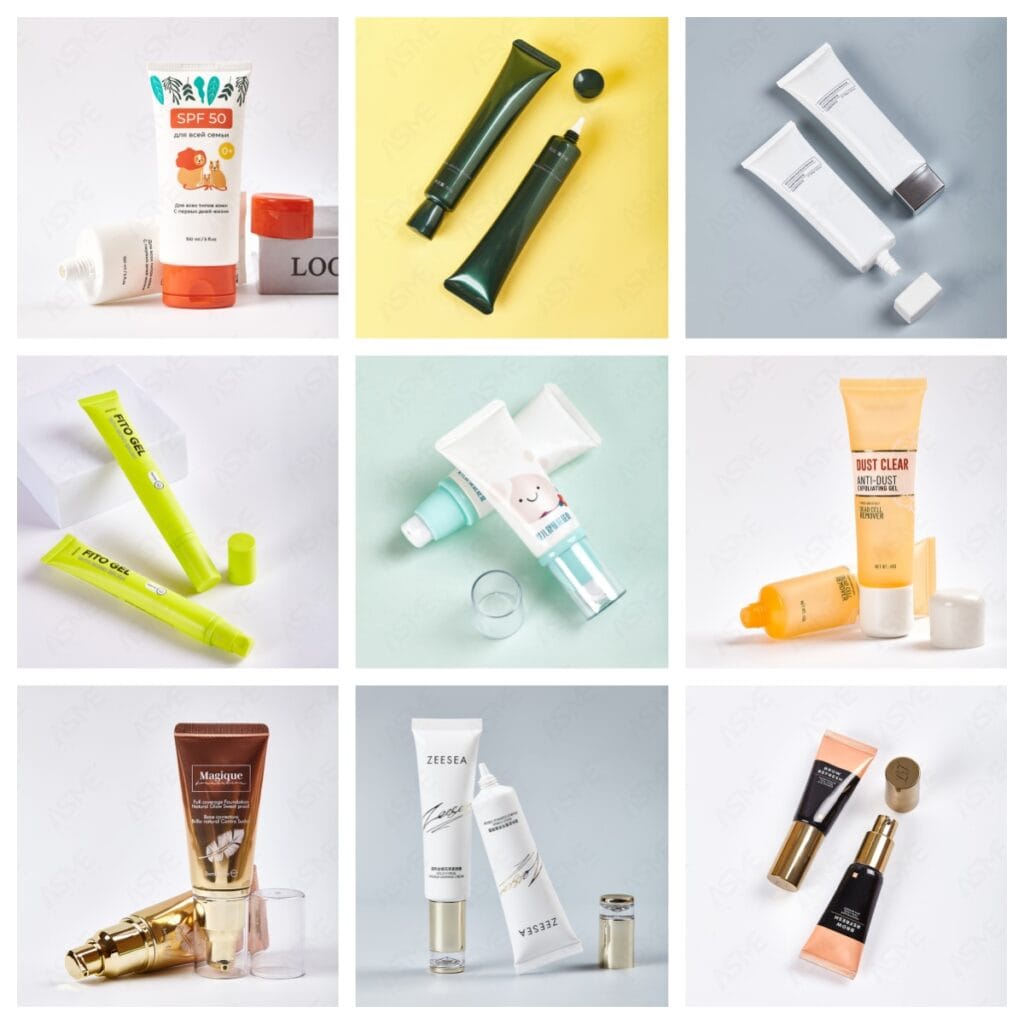Menu
Menu
Menu

Phthalates are a group of chemical compounds widely used as plasticizers to enhance the flexibility, durability, and transparency of plastics. In the cosmetic industry, phthalates are often utilized in the production of cosmetic tubes and containers to provide flexibility and resistance to breakage. However, concerns surrounding the potential health risks of phthalates have led to increasing scrutiny and regulation globally.
As a leader in the cosmetic packaging industry, ASME Packaging Co., Ltd (ASME) has been at the forefront of adopting sustainable and compliant manufacturing practices. This article delves into the global regulations on phthalates in cosmetic tube production, the impact on the industry, and how ASME is aligning with these evolving standards.
Phthalates have been linked to various health concerns, including endocrine disruption, reproductive toxicity, and developmental issues. These risks have prompted regulatory bodies to impose stringent restrictions on the use of phthalates in consumer products, particularly those that come into direct contact with human skin. For cosmetic tubes, this has necessitated a shift towards safer alternatives and more transparent labeling practices.
hand cream oval tube packaging
cosmetic tubes
d35 sunscreen tube cosmetic tube packaging
pump cap tube packaging
oval pe cosmetic tube packaging
The European Union has been a pioneer in regulating phthalates under its Registration, Evaluation, Authorisation, and Restriction of Chemicals (REACH) framework. Certain phthalates, such as DEHP, DBP, and BBP, are classified as Substances of Very High Concern (SVHC) and are restricted in cosmetic packaging. The EU also mandates that manufacturers disclose the presence of phthalates in products exceeding 0.1% concentration.

In the United States, the Food and Drug Administration (FDA) oversees the safety of cosmetic products, including packaging materials. While the FDA does not explicitly ban phthalates in cosmetic packaging, it requires manufacturers to ensure the safety of their products. California’s Proposition 65 further regulates phthalates by mandating warning labels for products containing certain phthalates known to pose health risks.
Countries in Asia, such as China, Japan, and South Korea, have also implemented measures to regulate phthalates in cosmetic packaging. For instance, China’s National Medical Products Administration (NMPA) requires manufacturers to comply with safety standards that limit the use of harmful substances, including phthalates, in cosmetic products and their packaging.
Other regions, including Australia, Canada, and Latin America, are increasingly aligning their regulations with global standards. These countries are adopting precautionary measures to limit phthalate exposure and promote consumer safety in the cosmetics industry.
ASME has taken proactive steps to eliminate the use of harmful phthalates in its cosmetic tube production processes. By leveraging advanced material science and sustainable practices, ASME ensures that its packaging solutions comply with global regulations while meeting the aesthetic and functional requirements of its clients.
To address the growing demand for safer packaging, ASME has invested in research and development to identify and implement alternative materials. These include bio-based plastics, recycled materials, and other phthalate-free polymers that offer comparable performance and environmental benefits.
ASME recognizes the importance of transparency in building consumer trust. The company provides detailed information about the materials used in its packaging solutions, enabling clients to make informed decisions and comply with labeling requirements in their respective markets.
The cosmetics industry is witnessing a significant shift towards sustainable packaging solutions. Consumers are increasingly prioritizing eco-friendly products, prompting manufacturers to adopt recyclable, biodegradable, and phthalate-free materials. ASME is well-positioned to capitalize on this trend by offering innovative and sustainable packaging solutions.
Advancements in material science are driving the development of safer and more sustainable packaging options. For example, the use of biodegradable plastics and bio-based polymers is gaining traction as a viable alternative to traditional materials. ASME continues to invest in cutting-edge technologies to stay ahead in this evolving landscape.
Collaboration among stakeholders, including manufacturers, regulatory bodies, and non-governmental organizations, is crucial for achieving industry-wide compliance with phthalate regulations. ASME actively participates in industry forums and initiatives to promote best practices and drive positive change in the cosmetic packaging sector.
The global regulatory landscape for phthalates in cosmetic tube production is becoming increasingly stringent, reflecting growing concerns about consumer safety and environmental sustainability. As a leading player in the cosmetic packaging industry, ASME Packaging Co., Ltd is committed to staying ahead of these regulations by adopting innovative, sustainable, and compliant manufacturing practices.
By prioritizing transparency, investing in advanced materials, and collaborating with industry stakeholders, ASME is not only ensuring compliance but also setting new benchmarks for excellence in the cosmetic packaging industry. As consumer preferences continue to evolve, ASME remains dedicated to delivering safe, sustainable, and high-quality packaging solutions that meet the needs of its clients and end-users worldwide.
Keywords: Sustainable packaging, phthalate-free materials
ASME has embraced the growing demand for sustainable packaging by offering innovative solutions that reduce environmental impact. Additionally, the company’s commitment to phthalate-free materials underscores its dedication to consumer safety and regulatory compliance.